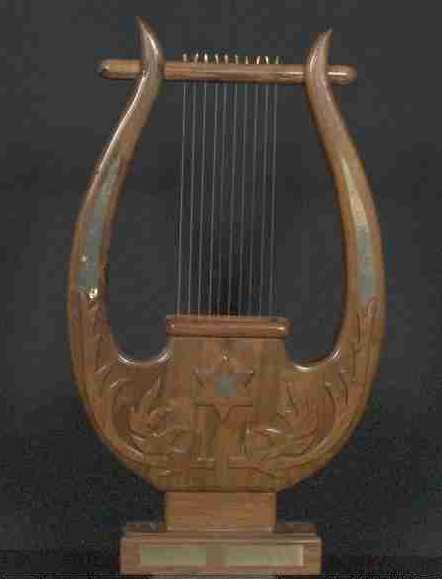“When I called you answered me; you made me bold and stouthearted” (Psalm 138:3).
I wish I could hear the above lyrics accompanied by their original music, and I would really like to know what circumstances inspired David to write about the rugged God-courage he received simply because he asked. Among all the other “hats” David wore—king, warrior, mourner, husband, dancer, father—David wrote songs, too.
What events stirred his soul to write vulnerable words that even today many re-express to God in prayer and praise? His words written thousands of years ago are readily grafted onto our circumstances today—still befitting the human saga because God is the same yesterday, today and tomorrow.
In this week’s column, let’s explore David’s songwriting talents, and next week a time of lamenting in his life, and then we’ll wrap up this series about David on Easter weekend. Some psalms explain what caused him to write the psalm, while others hint at behind-the-scenes, and still others leave us guessing as to what was going on in his life.
The emotions of his words vary. Sometimes they are strong and defensive. At other times they are written from weariness, longing, or surrender. I particularly like the ones filled with adoration for God. In one of my bibles when a psalm mentions “rejoice” or “praise,” I annotate the words by drawing tiny stick figures, hands lifted high, and a broad smile on the stick character’s face. David’s lyrics reach into our traumas, victories, and our human condition, helping us during defeat, deep-seated pain, or great joy.
Several of my talented friends and relatives play piano or guitar without any scored music in front of them. They ably entertain a room of people for an hour—from hymns, to boogie-woogie, to classical tunes. Their musical abilities cause reflection for their audiences.
Music played an important role throughout David’s life, too—I can see teenager David listening to Sunny Shepherd Station 103.4. Known as a “skillful musician,” later he was titled “Israel’s singer of songs” (1 Samuel 16:18; 2 Samuel 23:1). Through music, he expressed deep emotions to God that resonated with mankind.
Out of the many stories and characters in the Old Testament, I discovered that David didn’t witness apparent miracles from God. His relationship and knowledge of God arose from miracle changes that took place in his heart, and his psalms reflect the departure of self-worth and the surge of God’s ways. Out of 150 psalms in the biblical collection, about 78 of them are attributed to David.
Sometimes familiarity of a psalm may cause it to be trivialized such as the “23 Psalm for Students,” which states “The Lord is my Shepherd, I shall not flunk.” Still others have found solace in a psalm when balm could be found nowhere else. Not peace in just the words, but because of who the words are about—“The Lord is my shepherd, I have no other wants.”
While Psalm 118, may or may not have been written by David, portions of it are the most quoted in the New Testament—proof of how ancient words speak to us through the ages. Matthew, Mark, Luke, and John all quote from this psalm. And Jesus also quotes the prophecy about himself as a cornerstone. These writers mentioned the psalms to give commentary on the truths they shared. Adopt your own petition and praise phrases from David’s psalms and memorize them, so that anytime, anywhere, the sweet singer of Israel can lift your spirit.
“[B]e strong and take heart and wait for the Lord” (Psalm27:14).
Subscribe to:
Post Comments (Atom)










No comments:
Post a Comment